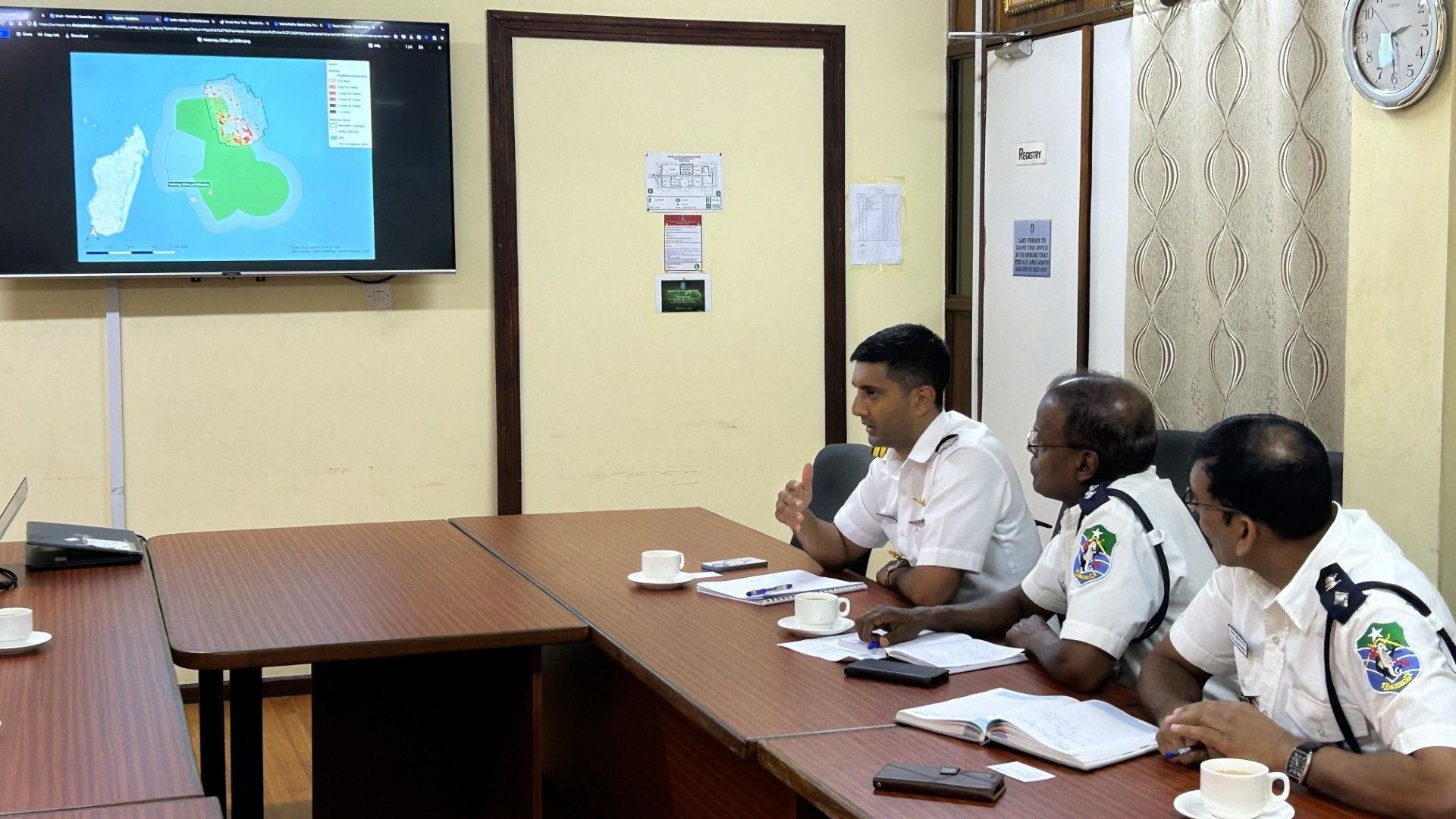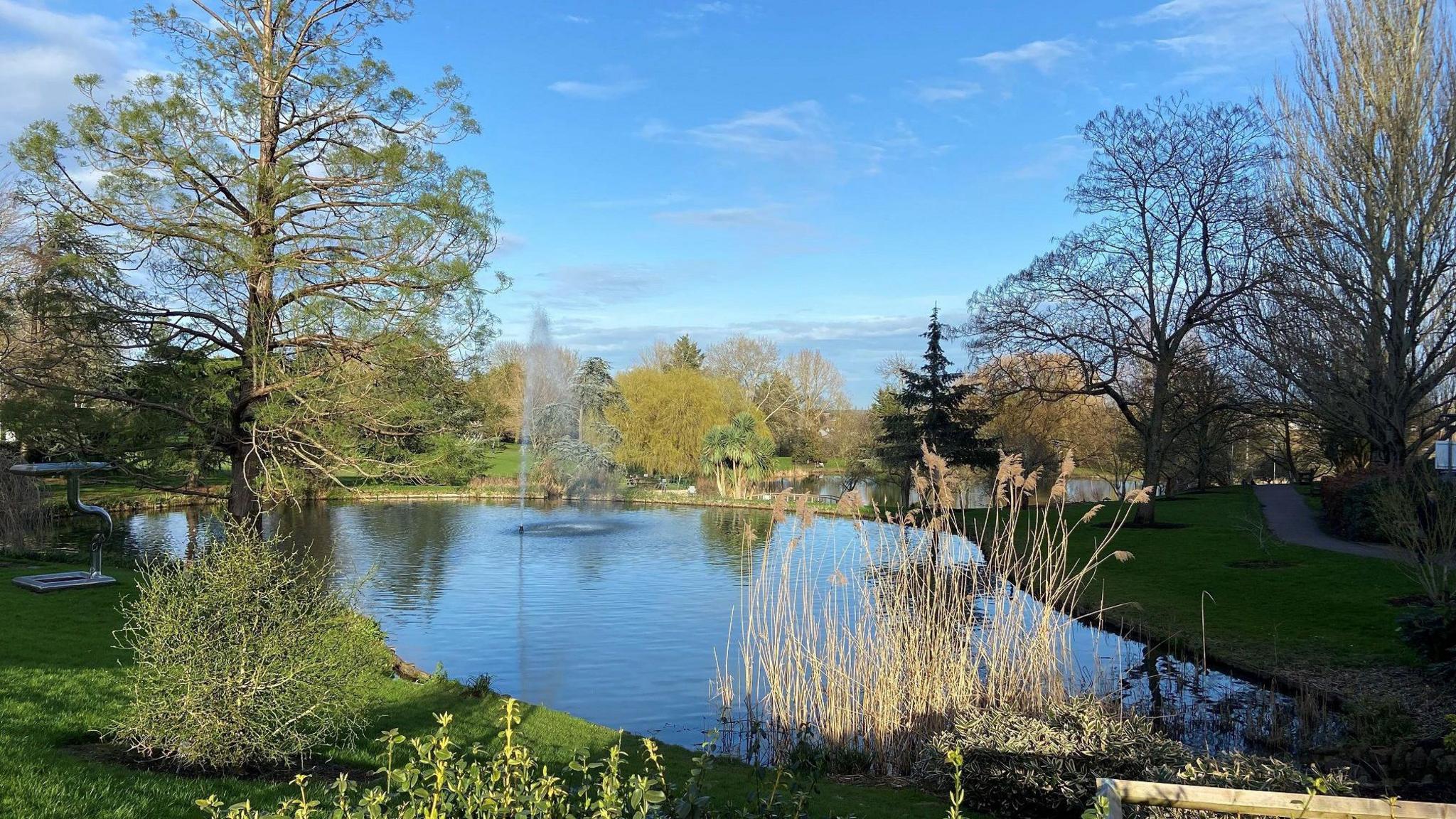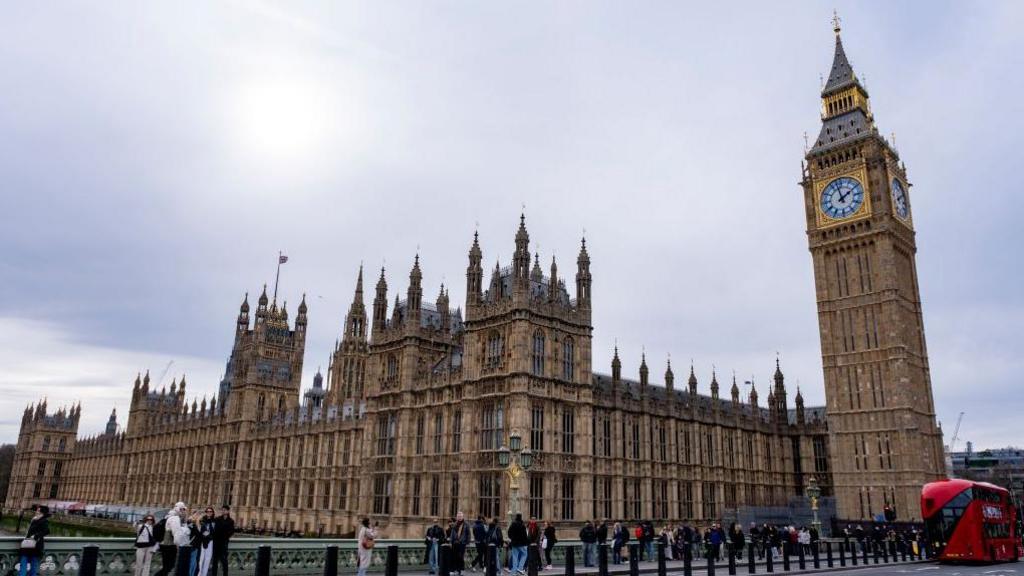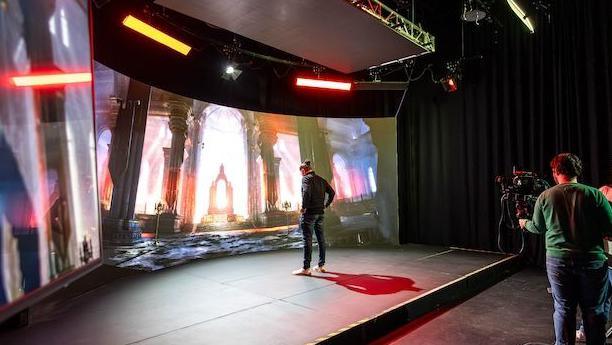University to help spot illegal fishing from space

Mauritius' National Coast Guard will be able to use the technology to detect suspicious activity
- Published
University of Surrey engineers are set to help Mauritius spot illegal fishing from space with the help of satellite images and artificial intelligence (AI).
The Nereus project has been developed by the university in partnership with the Mauritius Research and Innovation Council (MRIC).
The project will use ship location data to detect anomalies, spot ships of interest and work out where they are heading.
Dr Mary Matthews from the UN Development Programme (UNDP) said: "Nereus brings new hope to the fight against illegal fishing.”
Suspicious activity
The project has been funded by the UNDP Ocean Innovation Challenge.
Dr Raffaella Guida, reader in satellite remote sensing at the university's Surrey Space Centre, described the initiative as "an exciting milestone".
She said: "Catching vessels illegally fishing off an island such as Mauritius can be like finding a needle in a haystack."
A plug-in developed at the university will give the Mauritius National Coast Guard access to Nereus, which could help it detect suspicious activity.
MRIC director of research Dr Vickram Bissonauth said: "This is a concrete example of how space technology research can help us in addressing challenges we face as a small, developing island state."
Follow BBC Surrey on Facebook, external, and on X, external. Send your story ideas to southeasttoday@bbc.co.uk or WhatsApp us on 08081 002250.
- Published3 April 2024

- Published26 March 2024

- Published25 March 2024
